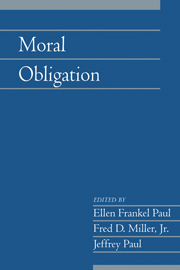The Moral Foundations of Social Institutions
In this book, Seumas Miller examines the moral foundations of contemporary social institutions. Offering an original general theory of social institutions, he posits that all social institutions exist to realize various collective ends, indeed, to produce collective goods. He analyses key concepts such as collective responsibility and institutional corruption. Miller also provides distinctive special theories of particular institutions, including governments, welfare agencies, universities, police organizations, business corporations, and communications and information technology entities. These theories are philosophical and, thus, foundational and synoptic in character. They are normative accounts of a sampling of contemporary social institutions, not descriptive accounts of all social institutions, both past and present. Miller also addresses various ethical challenges confronting contemporary institutional designers and policymakers, including the renovation of the international financial system, the “dumbing down” of the media, the challenge of world poverty, and human rights infringements by security agencies combating global terrorism.
- General normative theory of social institutions; not merely descriptive sociology, but rather human goods that institutions ought to provide
- Designing ethics into institutions; ethics as institutional engineering
- Frames major contemporary problems, eg. global poverty, global financial crisis, terrorism, as ethical and institutional challenges
Reviews & endorsements
"Miller's The Moral Foundations of Social Institutions is a true 'tour de force'. It will be of great value to all with an interest in a normative accounts of social institutions, offering a distinctive and convincing argument on a topic of genuine concern and interest. I profited greatly from its pages and highly recommend it."
-Thom Brooks, University of Newcastle
"... Seumas Miller's The Moral Foundations of Social Institutions: A Philosophical Study (MFSI) offers a timely and thorough response to the question: what should our social institutions be and do?... With this book, he implores us to consider how much better things could be if we all -- and in particular, if people in key institutional roles of power -- stopped to attend to the purposes of our institutions and the choices we make within them. The mere possibility of social institutions as Miller envisions them changes the normative landscape. In this sense, the book not only offers a powerful general theory and great deal of fodder for contemporary philosophical debates, it also serves as a model for how careful philosophical inquiry allows us to better understand who we can and should be."
-Alexa Forrester, Franklin & Marshall College, Notre Dame Philosophical Reviews
"....Miller’s book is an admirable achievement and deserves to be read by anyone
whose interests include social and political philosophy.... Miller’s theory has most of the major theoretical virtues: it is elegant, persuasive, and accurately describes our moral reactions to a range of social phenomena.... a significant achievement in the fields of social and political philosophy."
-Michael Blake, University of Washington, Ethics
"...the book is undeniably valuable, filling a gap in the existing literature and providing a helpful analysis of the normative dimensions of social institutions.... Miller’s book is a worthwhile read for anyone with an interest in institutions, collective agency, and collective responsibility.... I recommend it to anyone looking at social institutions and the thorny issues connecting those institutions to
matters of morality."
-Kenneth Shockley, State University of New York, University at Buffalo, Social Theory and Practice
Product details
December 2009Hardback
9780521767941
382 pages
235 × 158 × 28 mm
0.62kg
Available
Table of Contents
- Introduction to 'the moral foundations of social institutions'
- Part I. Theory:
- 1. A teleological account of institutions
- 2. The moral foundations of institutions
- 3. Individual autonomy: agency and structure
- 4. Collective moral responsibility
- 5. Institutional corruption
- Part II. Applications:
- 6. The professions
- 7. Welfare institutions
- 8. The university
- 9. The police
- 10. The business corporation
- 11. Institutions and information and communication technology
- 12. Government.









